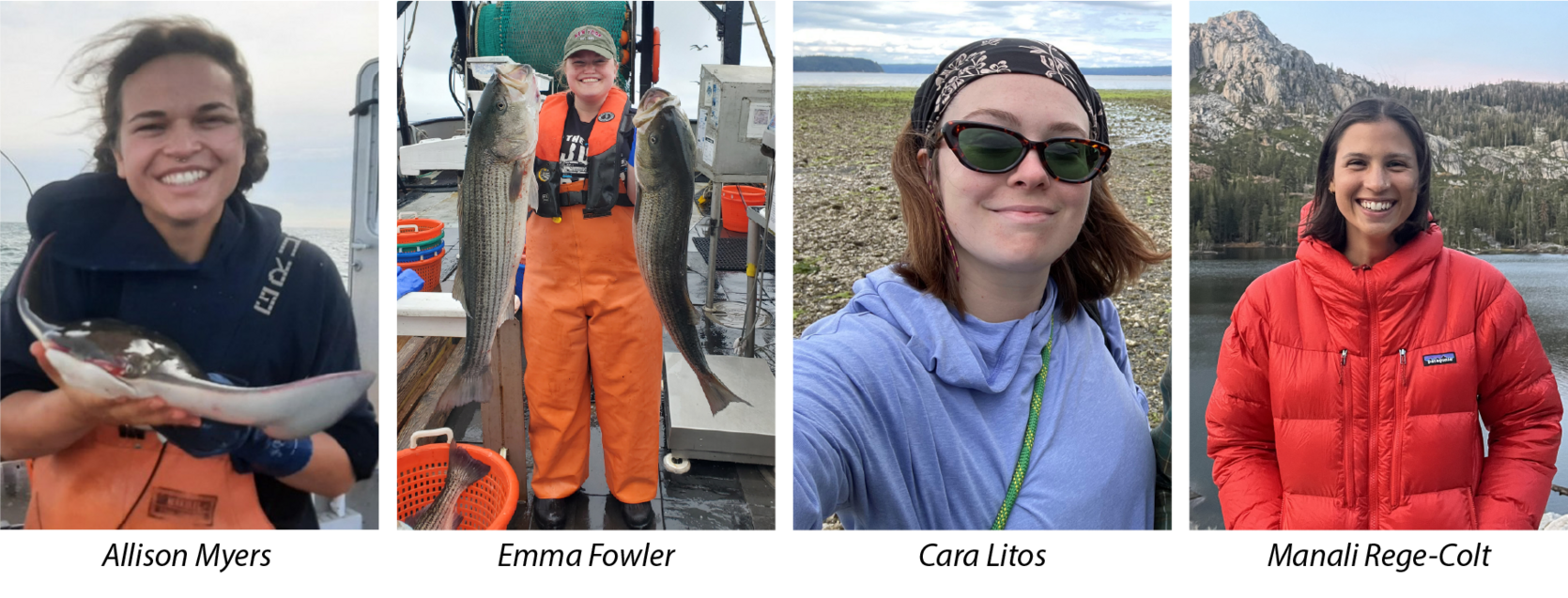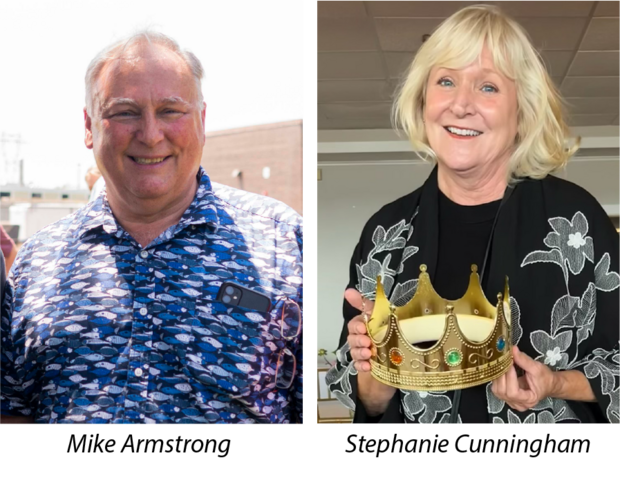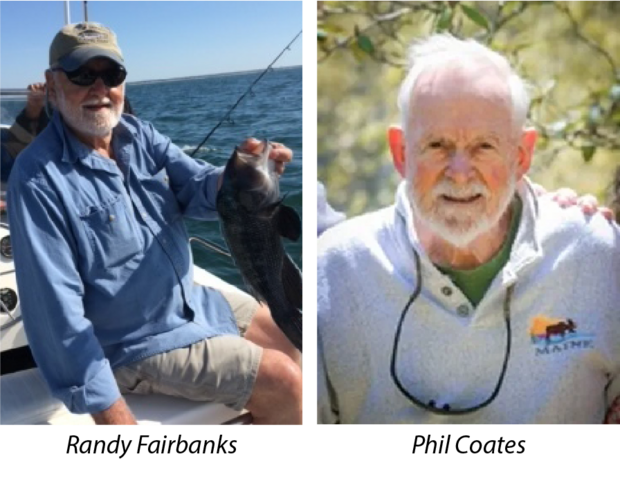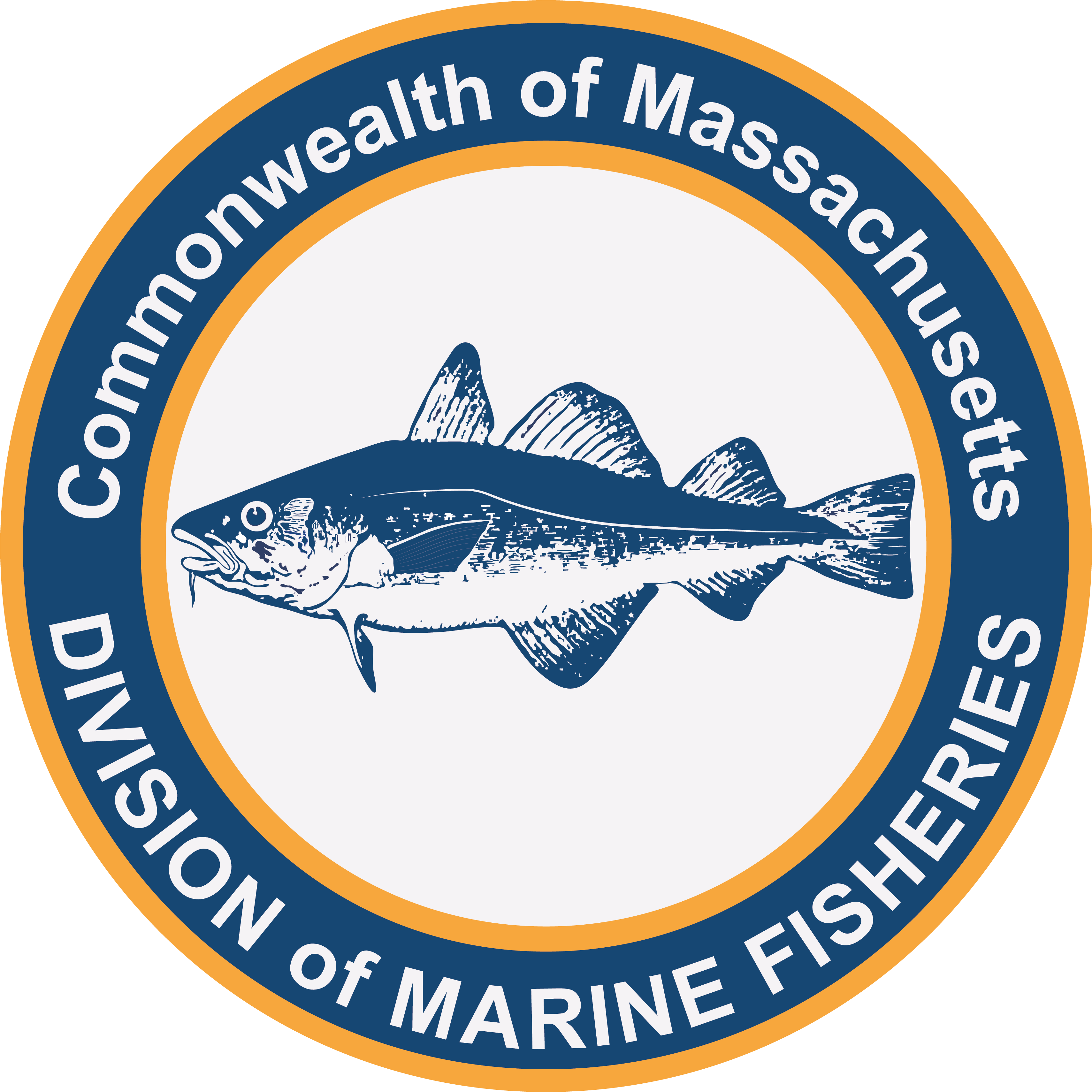- Division of Marine Fisheries

Comings
Allison Myers joined DMF in July as a Shellfish Classification Biologist. She will plan and conduct field investigations leading to the classification of shellfish growing areas, including collection and interpretation of water quality data, shoreline surveys to identify contamination sources, and completion of sanitary surveys in support of classification decisions. Allie graduated from University of Rhode Island in 2015 with a B.S. in Marine Biology and has experience in the US Peace Corps in the Philippines and as a fisheries observer in Alaska. Most recently, she spent a season as a technician on the state of Connecticut’s trawl survey and conducting horseshoe crab tagging studies at Cape Cod National Seashore before joining the Shellfish Program.
The Division welcomed Emma Fowler in November to the Protected Species Program. As a Protected Species Specialist based out of the New Bedford office, Emma will be working on all aspects of the agency’s expanded protected species scope of work including passive acoustic monitoring, our Endangered Species Act Incidental Take Permit and associated Habitat Conservation Plan, and other entanglement reduction efforts. Emma has a bachelor’s in marine science from Jacksonville University in Florida and has been working as a field biologist and lead scientist on the Gulf of Maine Bottom Longline Survey for the NOAA Cooperative Research Branch. She also has extensive experience as a fisheries observer and protected species observer.
Cara Litos joined the Division in October as our new Spatial Analyst within the Statistics Program, based out of the Gloucester office. Cara earned a BA in Geography with a focus in sustainability and a minor in geology from the University of Texas and worked for SWCA Environmental Consultants in Houston for the last 5 years. During that time, she analyzed wildfire risk data and worked on the Cape Ann Community Wildfire Protection Plan, working alongside our local fire departments, particularly in Gloucester. She developed a public-facing website with interactive maps outlining risk to improve our community’s wildfire preparedness and resiliency. Cara brings a unique perspective and extensive GIS experience to duties focused on the analysis of vessel tracking data.
The Division welcomed Manali Rege-Colt in December to the Protected Species Program in the new role of Protected Species Acoustician. She will be working on all aspects of DMF’s passive acoustic monitoring network for North Atlantic right whales, including hydrophone deployment and retrieval, and acoustic data analyses. Manali has a master’s in biology from the University of Vermont and has experience studying the acoustic communication of spotted dolphins in the Eastern Tropical Pacific. She also has experience with ecological genomics research and DNA extraction and sequencing.
Goings
In September, DMF wished a happy retirement to two long-time employees that both helped shape the Division as we know it – Mike Armstrong and Stephanie Cunningham. Mike’s distinguished career with the Division began over 30 years ago, when as a graduate of VIMS and UNH, he joined DMF to work for the lobster project. After a short stint in Florida, he returned to his roots in Massachusetts to serve as a DMF stock assessment specialist working on herring and northern shrimp. Mike was subsequently elevated to a senior supervisory role overseeing numerous programs including the recreational fisheries program, where he leaves his most notable marks. Mike helped shepherd the Division into new areas of research and specialization, growing DMF’s signature in the scientific literature, establishing the Age & Growth Lab, advancing regional stock assessment methods, improving the quality of recreational fisheries data collection, shaping the use of recreational permit fees to give back to anglers, motivating the next wave of fact-driven fisheries scientists and managers, and much more. Among Mike’s most recent initiatives was leading the refurbishing of the Division’s Cat Cove Marine Laboratory to advance fisheries science, education, and outreach to visiting scholars and the public. Like Mike, Stephanie leaves an indelible mark on the Division, particularly on the many colleagues she helped mentor throughout her career. Stephanie started with DMF in 1989 (after a few years with the Division of Fish and Wildlife), as a shellfish classification biologist armed with a degree from UMASS. Always willing to take on new assignments and continue to evolve her skills, Stephanie then joined the environmental review team, including serving on the first ever Ocean Planning Task Force for the state. Beginning in 2007, she became a federal assistance and grants coordinator, successfully navigating the federal grants system to secure and manage millions of dollars in support of the Division’s programmatic missions. Stephanie’s understated leadership, compassion, and can-do attitude set her apart, and in 2022, she was promoted to Management and took on the challenge of running our Gloucester facility. DMF celebrated both Mike and Stephanie with retirement parties this past summer, and you only needed to hear the heartfelt tributes from their colleagues to know the value they brought to their roles and the depth of friendships they nurtured along the way.
Staff Transitions
In July, Matt Camisa was promoted to the role of south coast Regional Shellfish Program Supervisor, bringing over 25 years of experience on several Division projects including habitat, resource assessment, and shellfish classification. Also within the shellfish program, Terry O’Neil, with over 30 years of experience in shellfish classification, was promoted in September to Classification Supervisor for the south coast regional field station. In October, Story Reed, was promoted to the position of Deputy Director, having over 20 years of experience where he served in several roles including the head of permitting, statistics, and as the former Assistant Director for Policy and Management. Also in October, Anna Webb was promoted to Assistant Director and she now leads the Division’s permitting & statistics programs after helping to develop many of the IT solutions used in those programs over the past decade. In December, Maren Budrow was promoted to the position of Federal Aid and Grants Coordinator, with over 10 years of grants experience for the Division and as a grants specialist for the National Marine Fisheries Service.
Massachusetts Marine Fisheries Advisory Commission
Michael Pierdinock attended his last Marine Fisheries Advisory Commission meeting as a Commissioner in September 2024. During his eight-year tenure, Mike served as the MFAC vice-chair, and was one of the two MFAC members that also served on the state’s Marine Recreational Fisheries Development Panel. Mike brought to his role considerable knowledge of the Commonwealth’s marine fisheries garnered from his years as a for-hire vessel owner/operator out of Plymouth. Mike continues to serve the interests of the Commonwealth as a member of the New England Fishery Management Council, where his increased level of involvement led him to leave behind his Commission seat. DMF anticipates a replacement will be appointed to the Commission in early 2025.
Atlantic States Marine Fisheries Commission
Massachusetts’s three-member delegation to the Atlantic States Marine Fisheries Commission has a new face. State Representative Jennifer Armini of Marblehead has been newly appointed to the Legislative Commissioner role, following Representative Sarah Peake’s decision to resign from the legislature and join Governor Maura Healey’s team as a senior advisor for intergovernmental affairs this fall. Representative Armini represents the coastal states of Marblehead, Swampscott, and Lynn. Representative Peake was a valued member of the ASMFC for over a decade, bringing knowledge and attention to the marine fisheries management matters most important to Massachusetts stakeholders. Her trusted aide and frequent proxy to the ASMFC, Sarah Ferrara, has been helping Representative Armini get up to speed with all things ASMFC.
In Memoriam
by Director Dan McKiernan
During late 2024, we lost a pair of legacy fisheries professionals who led DMF during the 70s, 80s and 90s. Randy Fairbanks and Phil Coates were both pillars within state, interstate and federal fisheries management. Phil and Randy were true DMF “elders”.
They witnessed the collapse of striped bass in the 60s and 70s and both were instrumental in the successful recovery during the 90s led by the Atlantic States Marine Fisheries Commission with congressional support through the historic Emergency Striped Bass Act. The success of the striped bass legislation created a new model for science-based interstate management that featured cooperation among the coastal states with mandatory compliance. Randy and Phil both were deeply invested in these processes.
Randy retired as DMF’s Assistant Director of recreational fisheries in 1991. In his career he saw the expansion of the federal Sportfish Restoration Act that provided federal funds to states through the Wallop-Breaux program (taxes levied mostly on fishing gear). With those increased funds he built the DMF Recreational Fisheries Program, including the hiring of new young talent that included renowned DMF biologists Brad Chase (diadromous fisheries expert) and Greg Skomal (the shark authority).
Phil Coates was one of the most popular and impactful professionals and fisheries management that many of us have ever known. He worked for DMF for 45 years including 21 years as Director. That is a record unlikely to be broken. He saw— and was involved with—the massive evolution of our fisheries and our management systems that many of us take for granted today. During his career, the so-called 200-mile limit was enacted and the regional fishery management councils created by the Magnuson-Stevens Act. Phil dedicated his career to improving fisheries management for better outcomes for both the targeted fish species and the fishermen who pursued them.
In the early years of my career, I served under Director Phil in the Boston headquarters for over 12 years. Phil was famously dedicated to DMF and his very important role as Director. Phil taught us to be responsive to all stakeholders and be good listeners. Our public hearings back in the 90s were frequent—with at least four rounds per year—and typically went very long into the night as the public debated the pros and cons of DMF’s management proposals.
Phil’s retirement party in 2000 was attended by 250 people! What a testimony it was to his personal dedication to the job as Director and his good spirit to have so many attendees. Even after retiring, Phil stayed engaged in marine fisheries, often attending DMF’s Marine Fisheries Advisory Commission meetings and Atlantic States Marine Fisheries Commission public hearings. He followed our progress closely and provided me with plenty of sage advice. Before his passing, he expressed deep concern for the striped bass stocks and the need for aggressive conservation.
Through his 25 years of retirement, Phil continued to give back: twice a year he would convene gatherings for any and all DMF retirees and friends of DMF to come together, get caught up, and maintain vital friendships. He was diagnosed with terminal cancer this past September and passed quicky. Incredibly, he took the time to reach out to many in the DMF family to share his news and express his appreciation to his friends and former colleagues.
Phil taught us to be optimistic about the chances for stock recovery, be kind to staff, fellow state Directors and other states’ fisheries managers, be persistent to get laws changed, and be caring—by keeping his friends and colleagues coming together.


